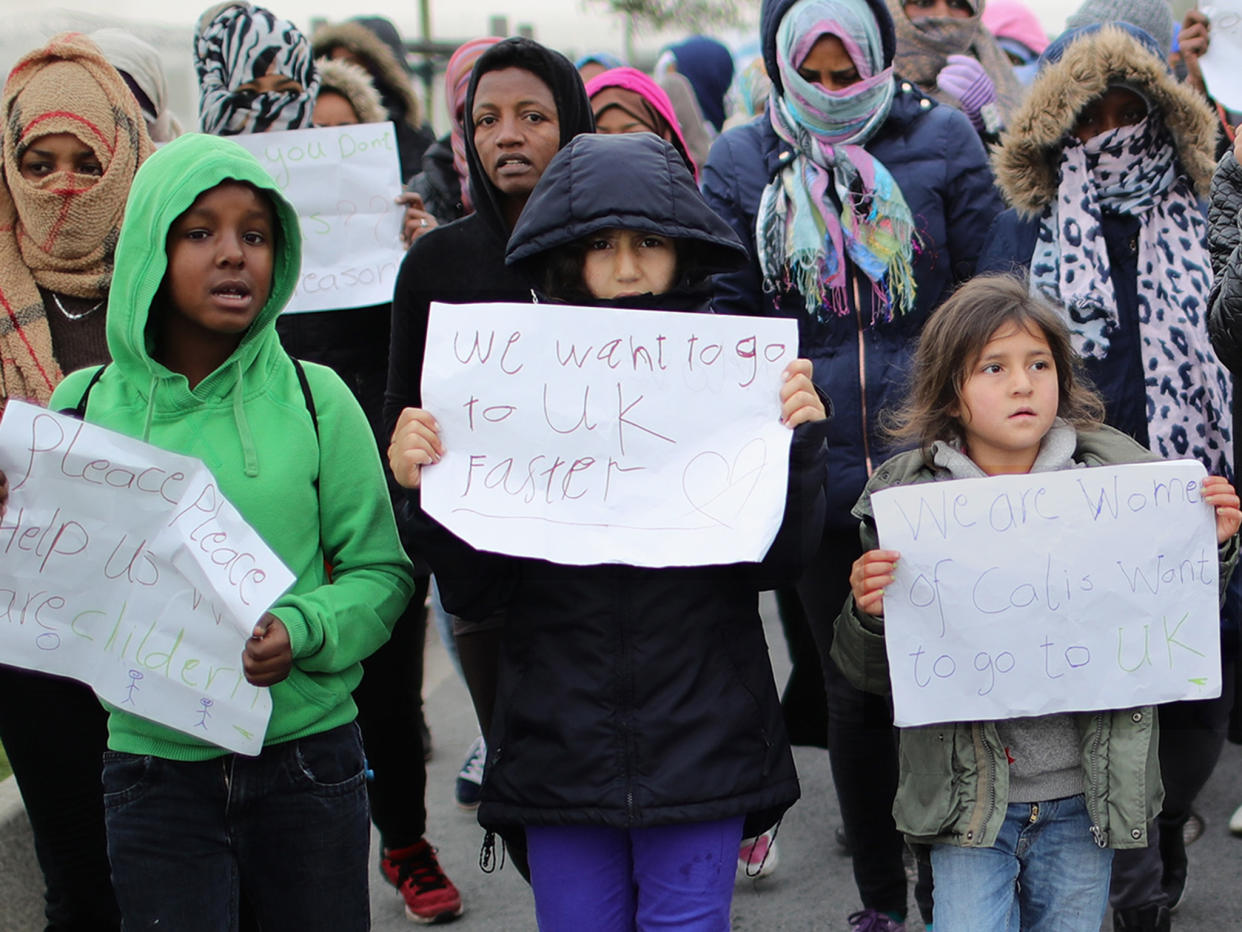Theresa May expected to announce UK will accept more child refugees stuck in Calais at Macron summit

Theresa May is expected to agree to accept more child refugees stranded in Calais and will spend £44.5m to boost security at the French port, when she hosts Emmanuel Macron at a UK-France summit.
The two leaders will sign a new treaty on Thursday to “complete” the Le Touquet agreement, which allows Britain and France to station border officials on each other’s soil, Paris said.
The new agreement would include “precise commitments” from the UK to speed up the processing of asylum claims and accept more unaccompanied minors, as well as the extra cash to protect the port, according to briefings from the Elysee Palace.
Announcing the £44.5m allocation, the Home Office said it would help pay for security fencing, CCTV cameras and "detection technology" in Calais and at other ports along the Channel.
It would build on previous security work in the area which had helped reduce illegal attempts to enter the UK from more than 80,000 recorded attempts in 2015 to just over 30,000 in 2017.
Meanwhile, No 10 did not dispute the reports from France, which follow Mr Macron’s visit to refugee camps at the trouble-torn French port earlier this week.
Instead, the Prime Minister’s spokesperson stressed that the UK stood ready to find homes for unaccompanied minors “when it is appropriate”, as well as to contribute to better security.
The deal on migrants and refugees is likely to overshadow London’s stated purpose for the summit – to be staged at the Royal Military Academy Sandhurst – which is closer defence and intelligence cooperation.
A joint communique will announce British participation in Mr Macron’s planned European Intervention Initiative (EII), to enhance coordination between the continent’s armies.
The UK will send three RAF Chinook helicopters to Mali, to bolster the French counter-terrorism operation in the African country, but purely in a logistics role.
And, for the first time, the chiefs of five intelligence services – the UK’s MI6, MI5 and GCHQ, plus France’s DGSE and DGSI – will meet together, to underline the determination to step up the exchange of information.
Stressing the summit’s key purpose, a government spokesperson said: “Recent terrorist attacks across Europe underline the scale of the cross-border challenge we face in keeping our citizens safe.”
On Tuesday, in Calais, the French President vowed he would not allow the recreation of the “Jungle” migrant tent city which was cleared by authorities in 2016.
And he criticised the “Dublin rules”, under which refugees are required to seek asylum in the first safe country they reach, calling instead for an “integrated” EU system to deal with the problem.
Despite the removal of the sprawling Jungle camp, an estimated 400 people remain in the area, hoping to cross the English Channel and reach the UK.
The UK Government has been strongly criticised for capping the so-called “Dubs scheme”, accepting only 480 unaccompanied minors instead of 3,000 as originally expected.
On the expected new treaty and the issue of, child refugees, Mrs May's spokesman told The Independent: “Work to identify unaccompanied minors in and around the Calais areas continue and, where it is appropriate to find them homes in the UK, we are determined to do so.”
The 35th summit between the two countries will see France offer Britain the chance to borrow the legendary Bayeux Tapestry, although not for several years.
However, Ms May will not offer a prestigious loan in return – although a government source said the tapestry could kick off a “wider exchange of significant artefacts”.
On the £44.5m security measures, a Government spokesperson said: “This is about investing in and enhancing the security of the UK border.
"Just as we invest in our borders around the rest of the UK, it is only right that we constantly monitor whether there is more we can be doing at the UK border controls in France and Belgium to ensure they are as secure as possible.”

 Yahoo News
Yahoo News 
